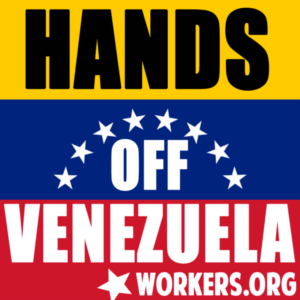



Back in February 1989, the rich in Venezuela were riding high under President Carlos Andrés Pérez. But the poor were hit with a sledgehammer when he initiated an austerity program that cut government spending and raised gasoline prices. Hunger grew into starvation for many, and the result was the “Caracazo.” Thousands broke into supermarkets and other stores in Caracas and surrounding towns to get food for their empty bellies. Some estimates put the number of people killed by the police and army at 2,000 in the repression that followed.
It was that violence by the state that deeply affected a young officer named Hugo Chávez, who said later that for him and his comrades “we had passed the point of no return and we had to take up arms. We could not continue to defend a murderous regime.” Chávez went to jail for attempting a coup, but came out a hero to the Venezuelan people, especially the poorest.
Behind the huge class disparity in Venezuela was its long history of being used as a cash cow by the Rockefeller-owned Standard Oil companies. At one time the second-largest producer of oil in the world, Venezuela was milked for tens of billions of dollars by the Yankee exploiters, even as the vast majority of its people lived in deep poverty.
Fast forward to today. Standard Oil morphed into Esso (SO — get it?), then into Exxon, then after it merged with another giant, Mobil, it became ExxonMobil. For nearly a century, the Rockefellers have picked the secretaries of state who craft U.S. foreign policy. And who might today’s secretary of state be? Why, none other than Rex Tillerson, former head of ExxonMobil. Small world.
U.S. oil companies and their banks are still trying to take Venezuela back. But, meanwhile, the Bolivarian Revolution, begun with the election of Chávez as president in 1999 and continuing today under President Maduro, has brought health care, decent housing and schools to people who had struggled without them before.
Venezuela’s oil was nationalized way back in 1976, but most of the economy is still in the hands of the capitalist class, who are doing everything they can to sabotage any attempted social transformation. And the Venezuelan bourgeoisie have the U.S. behind them, putting the squeeze on the country while building up the counterrevolution.
Trump is now threatening Venezuela with sanctions. We know what a counterrevolution is like. Chile in 1973 is one horrendous example that led to the massacre of thousands.
Defend Bolivarian Venezuela! Say no to U.S. imperialism!
It has become so increasingly clear that Israel is intentionally starving the nearly 2 million…
New York City The Brooklyn Navy Yard is a manufacturing complex that is heavily involved…
The following remarks were delivered at the People’s Summit on Korea in New York City…
Raposo is a Portuguese Marxist analyst, editor of the web magazine jornalmudardevida.net, where this article…
By Alireza Salehi The following commentary first appeared on the Iranian-based Press TV at tinyurl.com/53hdhskk.…
This is Part Two of a series based on a talk given at a national…